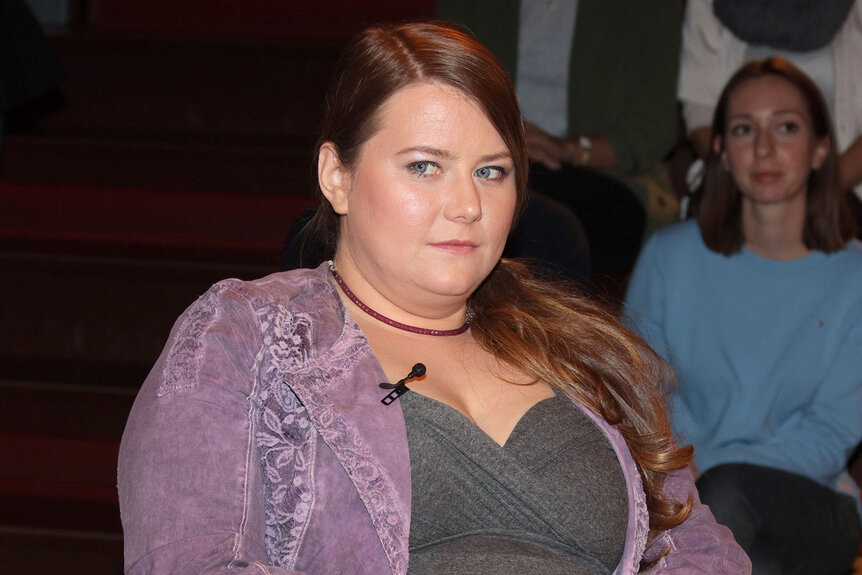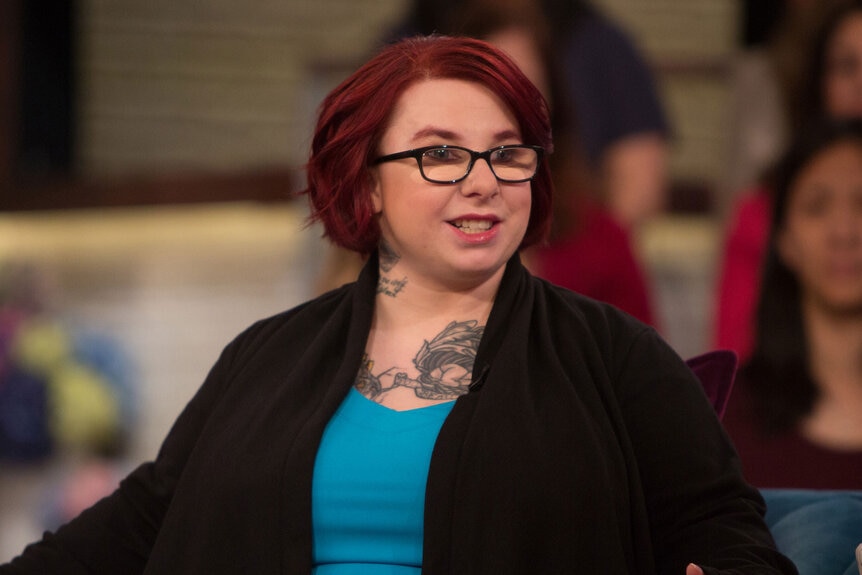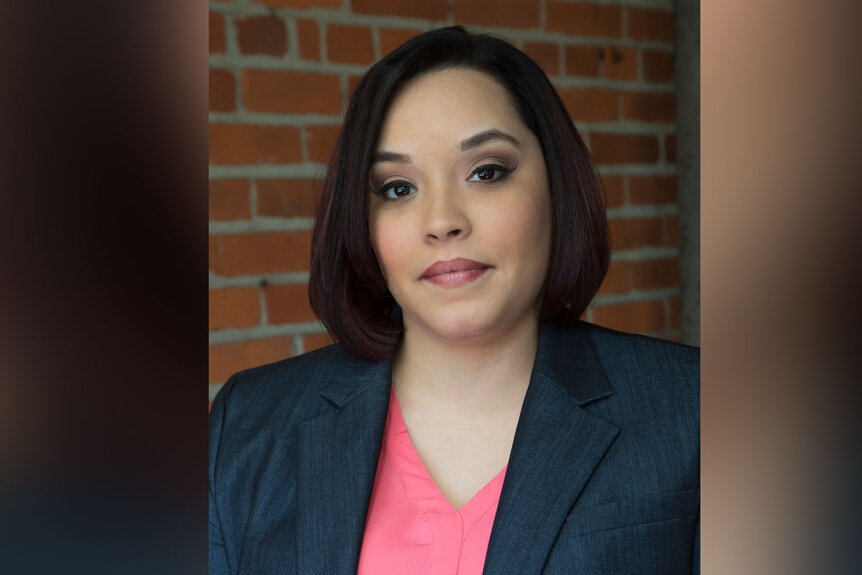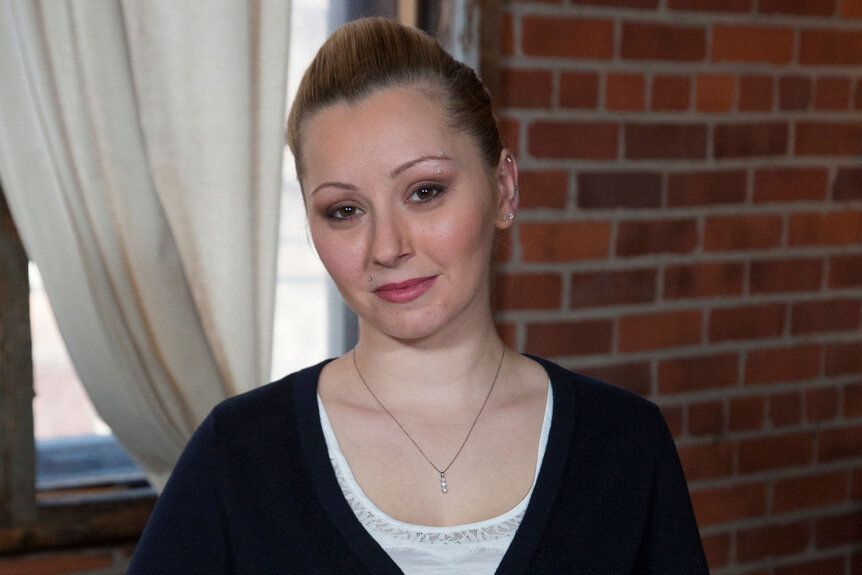Create a free profile to get unlimited access to exclusive videos, breaking news, sweepstakes, and more!
Escaping Houses Of Horror: The Cases Of Elisabeth Fritzl, Natascha Kampusch And The Cleveland Kidnapping Victims
While the new Lifetime movie "The Girl In The Basement" looks at the horrors of years-long captivity and unimaginable abuse, the aftermath in these cases for the victims can be a struggle.

The coercion, imprisonment, and rape endured by Elisabeth Fritzl at the hands of her own father in their home in Austria is the inspiration for Lifetime's new feature film, “Girl in the Basement,” which premiered Saturday. The movie shifts the story to the American suburbs while altering and expanding upon details of what actually happened between 1984 and 2008 in the eastern European town.
Her story is sadly not unique. When the ugly truth of the horrors committed beneath the Fritzl's home emerged, many recalled the case of Natascha Kampusch, an Austrian girl who was kidnapped in 1998 at the age of 10 and held captive for eight years by Wolfgang Přiklopil below his garage. She escaped in a rare moment that her captor was distracted and went on to tell her story of captivity, endurance, and years later, forgiveness.
Another "house of horrors" tale emerged in 2013 when it was discovered that Michelle Knight, Amanda Berry, and Georgina "Gina" DeJesus were being held captive for years in Ariel Castro's Cleveland home. Berry managed to escape one spring evening with her daughter and phoned the police; the three had been held between nine and 11 years.
While the new film looks at the horrors of captivity and years of abuse, the aftermath in these cases for the victims is largely left open-ended. Below is a look at what happened to these survivors — Elisabeth Fritzl and her six children, Kampusch, Knight, Berry and DeJesus — after their daring escapes.
Elisabeth Fritzl and her children
After Elisabeth Fritzl’s escape in 2008, which came after the eldest of the six surviving children she had by her father required hospitalization, she and her children were taken into state care and soon moved to a village in northern Austria, where they live in a fortress-like house and began therapy. They were given the option to take on new identities. Elisabeth, 42 when she escaped, reportedly had a strained relationship with her mother at first, who did not know what was happening for the decades her daughter was being held below her own home. But according to an article in The Independent, their relationship was repaired over time, and Rosemarie Fritzl has even grown close with her children.
The children, particularly the three who lived in the basement and had to adjust to life outside of that prison, appear to have had an uphill struggle toward a sense of normalcy. Two reportedly experienced anxiety and panic attacks brought on by small occurrences, like the dimming of lights and doors opening, as they slowly adjusted to their new lives. Her teenage son, Stefan, was unable to walk properly after years of stooping in the basement prison, Australian outlet The Age reported in 2008. Elisabeth and the children kept in the basement, who for years had no access to vitamins, sunshine, and exercise, took daily doses of mood and emotion-altering drugs, the outlet reported. It was initially said that they may need therapy for the rest of their lives. The three children kept upstairs by Josef Fritzl were mostly treated for anger and resentment after they learned the truth about their family and lives.
Josef Fritzl was sentenced to life in prison, which he is serving in Garsten Abbey. In 2009, he changed his surname to Mayrhoff to avoid recognition.
Natascha Kampusch
In 1998, when Natascha Kampusch was 10 years old and living with her family in Vienna's Donaustadt district, she was abducted on her way to school. For the next eight years, she was held by Wolfgang Přiklopil, a communications technician, until her daring escape in August 2006. For the first six months of her kidnapping, Kampusch was held in a small, soundproof, and windowless cellar underneath Přiklopil's garage in his home in the town of Strasshof an der Nordbahn. The cellar was just over 50 square feet.
Later in her years-long captivity, she was taken out for some hours during the day, and eventually allowed into the house, but returned to the cellar at night and when Přiklopil was at work. After her 18th birthday, she was allowed to leave the house with him, but was reportedly told that the windows were booby-trapped with high explosives; he also claimed he carried a gun. Yet during her captivity, Kampusch was allowed on excursions into town with her captor, and at one point accompanied Přiklopil on a skiing trip.
Her August 2006 escape came when she was vacuuming Přiklopil's car. When he was distracted by a phone call, she used the opportunity to run, eventually finding a neighbor who called the police. In statements made after her escape, she said that she was given books, a television, and a radio, so she was able to educate herself, and that she was at times allowed to eat breakfast with her captor. However, he raped, beat, and starved her during her years in captivity.
"It was a place to despair," she said.
The complex circumstances of this kidnapping, as well as having members of the police and public view her story with doubt, affected Kampusch years after her escape. Police had initially suggested that she might have become fond of Priklopil over the years; however, they were also facing scrutiny, as they’d questioned him early on in the kidnapping investigation but didn't adequately follow up on him, an independent probe into the case found. Kampusch even referred to Přiklopil as a “poor soul” and said she felt sorry for him after learning of his death by suicide just after her escape. In a 2019 interview with BILD, Kampusch, now living in Vienna, said that years later, she was still the victim of frequent cyberbullying, which she said police hadn’t taken seriously.
"[After escaping], online abuse became a part of my everyday life. There were times where I didn't even go out anymore because the abuse was so bad," she told the outlet.
Kampusch now owns the house in which she was imprisoned, which was given to her after Přiklopil's death. She told BILD that she wanted to sell it to a group of refugees, but encountered resistance from the town’s mayor and residents. Since her escape, she said she has worked on her relationships with her sister and mother, the outlet reported, and has found solace in horseback riding. She has a mare named Loreley.
In 2010, a book about her ordeal, “3,096 Days,” was published, upon which the 2013 German film of the same name was based.
Michelle Knight, Amanda Berry, and Georgina "Gina" DeJesus
After leaving a cousin’s house in August 2002, 21-year-old Michelle Knight disappeared. Less than a year later, in April 2003, Amanda Berry, 16, vanished after leaving her job at Burger King. The next year, on the way home from her middle school, 14-year-old Georgina "Gina" DeJesus disappeared, too. The three missing women’s time in captivity at a home in the Tremont neighborhood of Cleveland became international news in May 2013 when they finally escaped after years of torture.
Over those years, the three were chained, raped, and starved by Ariel Castro, a former city bus driver with a history of domestic abuse. Castro had offered each girl a ride in his vehicle, then lured them into his home and brought the girls into his basement. Later, they were all kept in locked upstairs bedrooms, forced to use plastic toilets, fed one meal a day, and bathed once per week. Berry gave birth to a girl while in captivity. After their escape, Castro pleaded guilty to hundreds of counts of rape and kidnapping, along with several counts of aggravated murder for his intentional induction of miscarriages. Knight told authorities she got pregnant five times.
Berry was able to escape on May 6, 2013, after Castro failed to lock a large door in the house. Thinking she was again being tested, she screamed to his neighbor, who kicked a hole through the bottom of the storm door and freed her and her 6-year-old daughter. She then called 911, and police arrived at the house and took the three victims to Cleveland’s MetroHealth Medical Center.
The harrowing story of Knight, Berry, and DeJesus’s captivity and escape in a major American city was both shocking in its details and inspirational in the women’s resilience and iron will to survive. Two months after their escape, they released a video statement thanking the public for their support; The Cleveland Courage Fund also raised over $1 million to help the three victims transition to a normal life. The three women gradually began to do media appearances to discuss their ordeal and advocate for kidnapping victims.
In 2015. Berry and DeJesus were given honorary diplomas from John Marshall High School. That year, they also released their memoir, “Hope: A Memoir of Survival in Cleveland,” written with two Washington Post journalists. Berry later began work with a Cleveland news station, working on missing person stories. DeJesus founded The Cleveland Family Center for Missing Children and Adults in 2018; the nonprofit is located on the same street where she was held captive for years.
Knight told ABC News’s Robin Roberts in 2020 that, like Kampusch, she found solace in equine therapy. She eventually changed her name to Lily Rose Lee. She also told ABC News that she was starting her own nonprofit to support child abuse, domestic violence, and human trafficking victims. She is now married, and said that her husband “showed me that life doesn’t have to be horrible and you don’t have to be alone.”
Castro was sentenced to life plus 1,000 years in prison after he pleaded guilty to 937 counts of kidnapping and rape in August 2013. On Sept. 3, 2013, he killed himself in his prison cell.
The home where the three women were held captive was demolished. It’s now a garden.





























